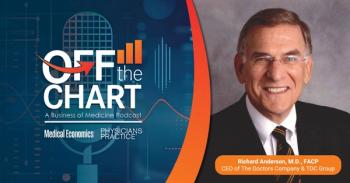
The 2026 Physician Fee Schedule
Anders Gilberg, senior vice president of government affairs at MGMA, discusses the inadequacies of the 2026 Medicare Physician Fee Schedule.
Physicians Practice: Let's pivot a little bit to the Physician Fee Schedule, it's out, as always, there's crazy cuts in weird places. What's the biggest adjustment that practices are going to have to make if the the fee schedule goes into effect as it's put out now?
Anders Gilberg: I think the major financial repercussions in the fee schedule result from two reforms that CMS is implementing.
The first one deals with an adjustment to the work RVUs to, in CMS' mind, account for certain efficiencies that have occurred. But in the end, it's also very critical of some of the data that came out of the American Medical Association and the specialties as part of the CPT process and the relative value update committee process. But I would say this about it is: they just instituted a 2.5%, or approximate across the board, cut on thousands of codes, and they increased some, but in doing so, they created just a huge swath of codes that created a shift from, I'd say, and generalizing quite a bit, but for more specialty-based codes towards more primary care based codes. So for primary care physicians, they would benefit from it. But my warning would be this, the CMS rationale for doing this across the board, efficiency adjustment, is that they didn't have sufficient data from the AMA and these other processes, but they definitely didn't have sufficient data to just make this broad cut, and the methodology they used doesn't really make sense to me.
It's based on productivity adjustments in the Medicare economic index, a lot of very wonky stuff. But you know, physicians haven't received a Medicare economic index based increase in years. So, the rationale is a little shaky. And what I would say is the last thing we really want is the government to then making really big arbitrary decisions on physician payment, because I don't believe that any specialty will like that in the end.
So, a lot of folks are at least pointing out some of the methodological issues that are going to create these shifts. So, just to sum it up: your listeners and readers, if you're in a specialty that isn't primarily primary care based you just need to be mindful that the RVU shifts both on the Work RVU and then some additional practice expense, RVUs that could penalize, let's say, independent practices that take care of patients in a hospital setting. It would reduce their overhead. But the fact is that even if you're a surgical practice, you still have to have an office to see the patients and have nurses outside of the hospital, even if you're doing your surgery in the hospital, some of the rationale is flawed, but again, certain surgical specialties and different other you know, specialties might see cuts to their RV use that will surprise them and override any increase that Congress provided in the One Big Beautiful Bill. So be mindful of that.
Newsletter
Optimize your practice with the Physicians Practice newsletter, offering management pearls, leadership tips, and business strategies tailored for practice administrators and physicians of any specialty.






